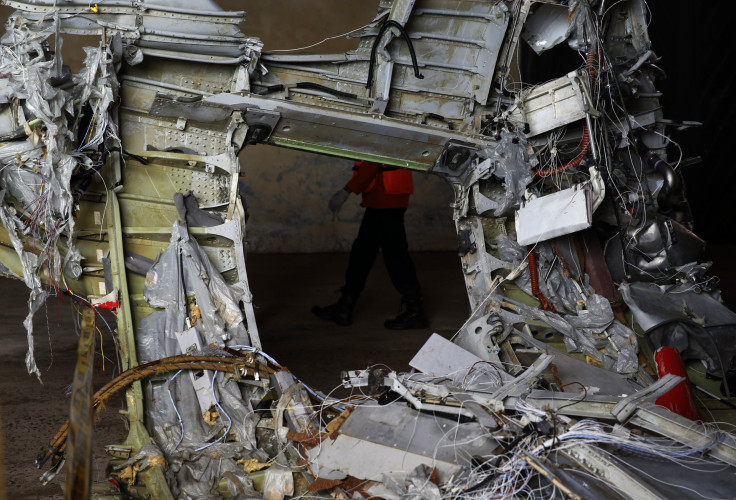AirAsia Flight 8501: Preliminary Crash Report For 'Countries That Are Involved,' Won't Be Made Public

Indonesia's National Transportation Safety Committee (NTSC), which is investigating the AirAsia Flight 8501 crash, will not publicly release a preliminary report on the probe, a senior official told Reuters on Wednesday. The news comes a day after the country's transport minister claimed that the plane made an abnormally steep climb before stalling and crashing into the Java Sea.
Investigators are expected to submit the report of a month-long probe next week to the International Civil Aviation Organization (ICAO), which requires accident reports be submitted within 30 days of an event. The Airbus A320-200 went missing from radar on Dec. 28 about halfway through its flight from Surabaya, Indonesia, to Singapore, with 162 people on board.
"One month after the accident we will just make a preliminary report. No comment and no analysis," Tatang Kurniadi, chairman of the NTSC, told Reuters. "This will not be exposed to the public. This is for the consumption of those countries that are involved."
On Tuesday, NTSC investigators said that the probe will now focus on human error and aircraft damage as possible reasons for the plane’s crash, after ruling out terrorist involvement.
Indonesian Transport Minister Ignasius Jonan had said Tuesday that radar data revealed that the plane “went up faster than normal speed. … Then it stalled.” He added that the plane attempted to climb at 6,000 feet per minute, an action that would challenge even fighter jets.
“It’s unlikely that a fighter jet would increase its flight level at a speed of 6,000 feet per minute,” Jonan reportedly said. “The average [climbing] speed of a commercial aircraft is probably between 1,000 and 2,000 feet per minute, because the aircraft is not designed to soar so fast.”
Investigators are analyzing the flight data recorders retrieved from the Java Sea to determine the cause of the crash that killed everyone aboard the jet.
Andreas Hananto, an NTSC investigator, reportedly said that the final minutes were full of "sounds of machines and sounds of warnings," which needed to be filtered to get a complete transcript of what was said in the plane's cockpit.
Meanwhile, divers have been attempting to reach the fuselage, where bodies of several victims are believed to be trapped. However, searchers have reportedly not recovered any more bodies of passengers from the sea in the last two days. So far, 53 bodies have been retrieved of which 46 have been identified.
© Copyright IBTimes 2025. All rights reserved.





















